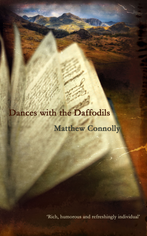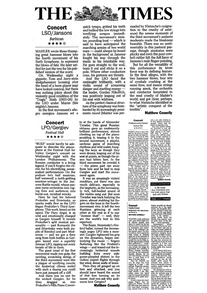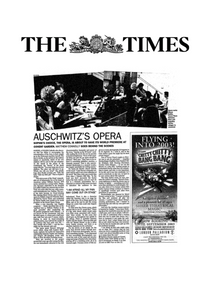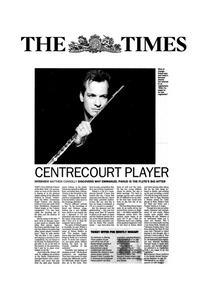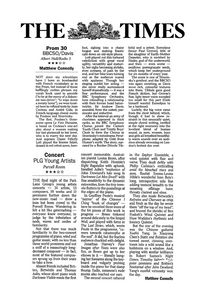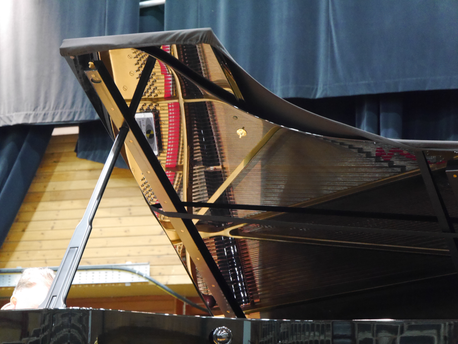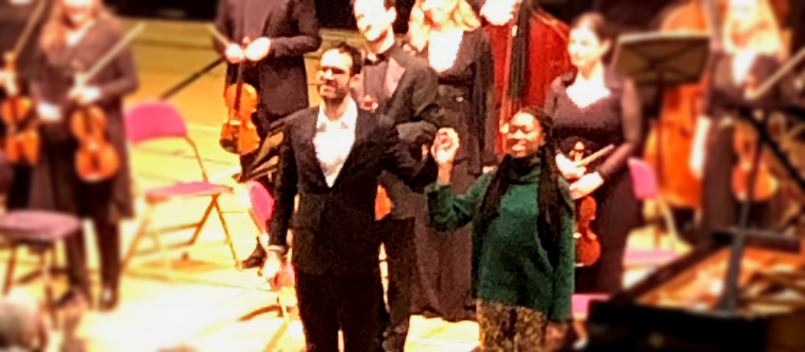WRITING, EDITING, SELF-PUBLISHING AND MULTIMEDIA SERVICES
ABOUT ME/ARTS REVIEWS
I was born and raised in Manchester, studied in Liverpool, and trained in journalism in London. Over several decades I worked in London for a variety of national newspapers and magazines, as a writer and subeditor, including at The Guardian (News, Business, Features, Arts); The Observer (News, Business); The Times (as a classical music critic, and in Arts, Features, News, Opinion, Obituaries); The Sunday Times (News, Business); The Times Online (night editor); The London Evening Standard (Londoner's Diary); and Classic FM Magazine (deputy editor). I also freelanced for Time Warner Books, the UN University, the Specialist Schools and Academies Trust, and BBC School Radio. I now live and work from home in the Lake District. I'm also a fiction writer and music composer, and love running up hills, cycling down dales and swimming in lakes, tarns, rivers and the sea. Look forward to meeting you, on or offline!
A selection of articles for The Times
To read my arts reviews in Northern Soul web magazine click below
Latest classical reviews ...
ARTISTS AND ATHLETES
ROBERT AND CLARA VERSUS EROICA
Agility and delicacy: conductor Dinis Sousa and pianist Isata Kanneh-Mason.
INSTRUMENT IMAGES BY GRAHAME MELLENBY
ROYAL NORTHERN SINFONIA, WESTMORLAND HALL, 17 Feb 2024
Athleticism and artistry could not live more happily together than in the English Lake District, to which the town of Kendal, on its southern edge, is known as the gateway. While tourists from across the world come to The Lakes in their many millions, artists and athletes from everywhere also make this their home – they simply can’t resist the inspiring fells, tarns, becks, ghylls … and of course, lakes. The athletes run, ride, walk, climb and swim; the artists paint, write, play, act, sculpt, sing and compose. Some artists are also athletes and join many others of every type and talent, buying a one-way ticket to this uniquely beautiful corner of England between the Irish Sea and the Scots border.
No finer place, therefore, for the Royal Northern Sinfonia to visit, fresh from the world-class Glasshouse (formerly Sage) in Gateshead, on Saturday, 17 February, at Kendal’s Westmorland Hall, which, in fact, doubles up as the local Leisure Centre, run by the Better social enterprise – a gym and swim, multi-event venue.
The audience dashed through the Cumbrian rain, subdued their umbrellas and flocked into the concert hall, ‘flock’ being the operative word for a market town whose motto is pannus mihi panis, or ‘wool is my bread’) … and for the fact that more than 600 tickets had been sold for this event. “That’s the biggest audience since Covid,” trumpeted the host of the pre-concert talk on behalf of the Lakeland Sinfonia, this venue’s resident orchestra.
The pre-concert talk guests were two of the stars of the evening: the Royal Northern Sinfonia’s Principal Conductor, Portuguese-born Dinis Sousa, and the Nottingham-born pianist Isata Kanneh-Mason. Amid chat about the music for the evening (Robert Schumann’s Symphony in G minor, Clara Schumann’s Piano Concerto in A minor and Beethoven’s Third Symphony), they revealed intriguing insights into their lives off-stage. Sousa, for example, likes to decompress away from music by doing the ironing and gardening, and Kanneh-Mason likes to do her ‘mental piano practice’ on whichever trays and tables appear in front of her on planes and trains as she travels the world as a celebrated virtuoso.
And so, the concert began, beneath this rather functional building’s tight, impersonal brickwork, on a stage painted and lined with the colours and geometry of a sports hall. The musicians needed to warm up literally, as the giant heaters glowing red on either side of the stage had not yet taken the late-winter nip out of the air. Amid the cacophony of tuning up, the audience (near its 700-ish capacity) chit-chatted away loudly, giving the whole place a pleasantly informal feel.
The fine, 40-strong Royal Northern Sinfonia began playing Robert Schumann’s symphony, a poor relation of the mighty Beethoven Eroica to come after the interval, but the orchestra gave it as much drama and conviction as they could, as did the agile and precise Sousa, who has a very watchable way of hanging in suspended animation in the pauses between movements.
“I connect with some orchestras better than others,” Sousa had said candidly in the pre-concert talk, and the rapport was reassuringly strong here as they struck the almost violent final chords of the Schumann first movement. Sousa’s gymnastics (forgive the pun) were matched by those of the orchestra leader, Polish violinist Maria Włoszczowska, whose swaying physicality could have led a circuit-training class here.
Next came Schumann’s wife, Clara, and her Piano Concerto, and Isata Kanneh-Mason had the honour of setting hands on the Steinway now wheeled to the front of the stage. Kanneh-Mason’s debut album Romance – the Piano Music of Clara Schumann conquered the classical music charts in 2019, so a safe pair of hands in every sense.
Refreshingly informal sartorially, in a cosy-looking green top with sequined silver trousers, she perched at a piano so close to the first row of the audience that any of them could have turned her pages. Not that there were any pages, of course – all in the head, heart, soul, fingers. But what became instantly clear as she performed the concerto (part-composed at 14 by the prodigious Clara) was that she is refreshingly informal as a pianist, too. With subtle, calm power, she dispatched this work by a composer the male-dominated music world has taken several centuries to celebrate, and with tasteful, delicate fingerwork, she duetted with the orchestra, touchingly so with the solo cello in the second movement.
In her pre-concert comments, Kanneh-Mason had expressed how she likes to practise “at the edge of all barriers, technical, physical and mental” in the quest for freedom of expression. Well, there were many golden edges touched here in her particular blend of the technical precision and emotional freewheeling that every artist and athlete seeks. Her surprisingly static posture helped to focus the audience on the limbs that really matter: arms, hands, fingers, all of which were in full, eloquent flow, no more so than in the racing runs and arpeggios of the third and final movement.
Informality ruled at the interval, as bars, loos and ice creams were plundered while the orchestra chatted to audience members and Włoszczowska stole the freshly vacated piano stool for herself as she braced herself to lead the orchestra in the Beethoven.
“I try not to get in the way of the orchestra,” Sousa had said earlier, and he seemed to achieve this early in the first movement of Beethoven’s Third, allowing the immortal melodies to breathe deeply through the orchestra, bowing low as if in deference to his musicians. But he wasn’t afraid to use his arms to quieten players easily roused by music that swelled and sank like giant ocean waves.
Sousa appeared to facilitate not dictate dynamic control, to empower not exert power, and this combined muscle flexed itself movingly in the solemn second movement, whose funereal tread marched ahead like a slow, dying bear being led out of a cave. You couldn’t help but think of slain political martyr Alexei Navalny, whose death had been announced the day before.
In the third movement, Sousa and Sinfonia sliced through the scherzo’s crisp opening cuts and sharp final stabs with great precision, and in the final movement, Sousa was like a masterchef, tossing ingredients into the musical mix, sprinkling woodwind on top here, pouring brass in here, making the strings sizzle, but staying clear enough to avoid singeing his eyebrows in the flames of that roaring and brilliant Beethovenian climax. An impossible act to follow, which is maybe why there was no encore.
THE CARMEN BEFORE THE STORM
THE LIVERPOOL PHILHARMONIC PLAYS BEETHOVEN AND BIZET ... IN BARROW!
FORUM THEATRE, BARROW-IN-FURNESS, CUMBRIA, 20 Jan 2024
What a night to unbatten the hatches after a week skidding along Cumbria’s post-snow icy roads … but music-lovers headed fearlessly for Barrow-in-Furness on the west coast of the county, on the trail of a world-class orchestra, no less, as the Royal Liverpool Philharmonic was coming to town for the first time in more than 40 years.
The weather was surprisingly calm and mild – for Cumbria, for January, for climate change – but storms were brewing, both musically (with Beethoven’s tempestuous Fifth Symphony) and meteorologically (with Storms Isha and Jocelyn, whose lashing rains and gales in the days following the gig knocked out power to thousands of homes across both county and country).
The first hint of dramas to come came in the foyer of Barrow’s Forum Theatre, as the audience gathered for a sell-out concert heralding a three-year partnership between the Liverpool Phil and Barrow, mainly thanks to Arts Council England cultural ‘levelling up’ funding.
As concert-goers mingled and milled around the foyer, music (percussion, cello, bassoon) struck up from a corner of the room, followed by trumpet from another corner, and then a tall, swarthy, Latin-American man wearing a Barrow Football Club scarf, grinned his way into our midst.
We’d been flash-mobbed by the Liverpool Philharmonic, playing a stripped-down, jazzed-up snippet of Beethoven’s Fifth, conducted by their Venezuelan maestro Domingo Hindoyan. Within minutes we were herded into the auditorium, where Hindoyan and team reappeared and raced into the overture to French composer Georges Bizet’s opera Carmen. Formula One buffs know it as the ‘F1 podium theme’. The hall has a dry acoustic, but soon the effervescence of the piece, its performance and the whole occasion popped any reluctant auditory corks.
Hindoyan informed us Beethoven had expanded the orchestra to fit his Symphony No 5, but the Liverpool Phil had been shrunk in numbers to fit on the Forum stage. They felt, looked and sounded more like a chamber orchestra as they performed the great first movement with its immortal ‘da-da-da-dah’ motif. All the power, passion and projection of the full-size version, but more personalised. In fact, in Hindoyan’s skilful hands this RLPO chamber orchestra delivered about as intimate a Beethoven’s Fifth as you could get without everyone snuggling under a duvet together.
The onstage dramas were accompanied by a film, by Barrovian photographer-filmmaker Colin Aldred, featuring slow stills and moody moving pictures of Barrow townscape and seascape, juxtaposing old urban façades with oystercatcher seashores.
Beethoven, Hindoyan declared, was “no longer only German but for all the world”, and as you witnessed this great music lovingly performed, while glancing across at fine images of this great town and coastline, you couldn’t help hoping Barrow is no longer destined to suffer its recent history of deprivation and unemployment, always in the shadow of its 18-million-visitors-a-year neighbour the Lake District, but to be a re-energised ‘town for all the world’.
Hindoyan and his merry band left the audience serene and replenished after a beautifully subtle second movement, and then steered us expertly through the bipolar dynamics and major-minor mood swings of the third and fourth movements, stretching increasingly elastically between earlobe-caressing pianissimos and rafter-troubling fortissimos.
Gradually the film moved from mono to colour, ending with a 360-degree slowly turning Barrow in the sky, maybe having swapped its old black-and-white, two-dimensional image for a more vibrant and more rounded 21st Century one. After all, things are looking up jobwise: Barrow is now a global centre for sustainable energy creation thanks to its offshore wind farm industry, not to mention its thriving nuclear submarine industry.
With more music and investment on the menu, what better magic ingredient to sprinkle on this budding Liverpool Phil-Barromance than the concert’s encore – All You Need Is Love.
Follow the RLPO in Barrow via liverpoolphil.com

